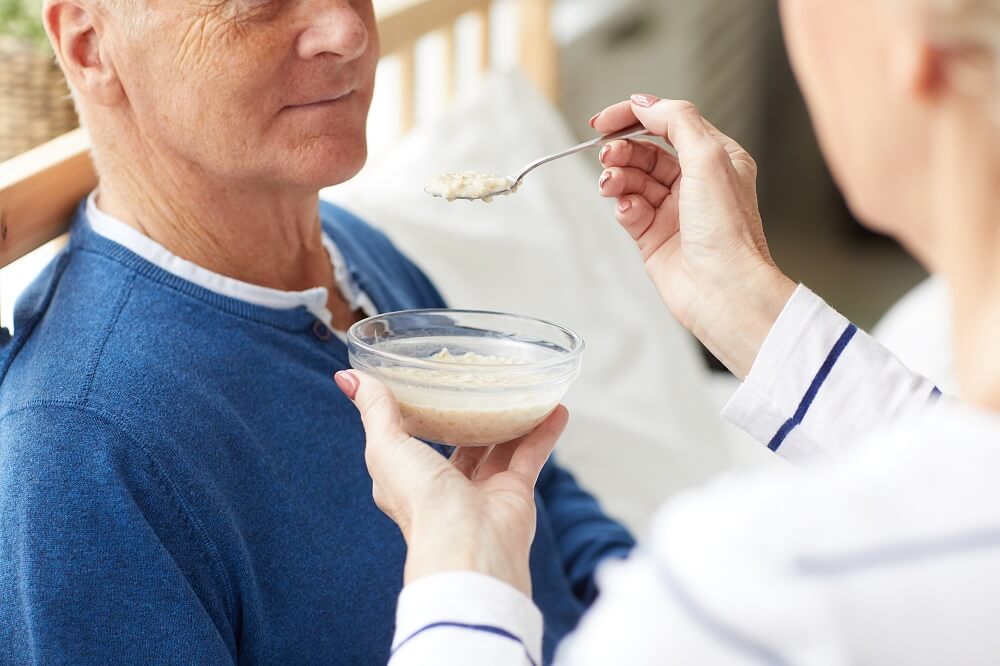Weight Loss
Weight loss is specifically concerning because it can be a sign of malnutrition – a very serious and often under-diagnosed condition that means the body is not getting enough nutrients.
Older adults can become malnourished for a variety of reasons, but the obvious one is that they are not eating enough food. Some reasons for this include poor mobility, which can make it difficult to prepare food; lack of financial resources, which can impact how much food can be bought; certain medications, which can suppress appetite.
If you notice that your parent has lost weight, take note of what (s)he eats during your visit and trust your gut. If you don’t think it’s enough, suggest an appointment with the doctor. So long as there is no underlying medical condition for the weight loss, ask him/her to refer your parent to a nutritionist who can make suggestions on how to modify eating habits.
Depression
Depression most of the day, nearly every day. If you think that this describes your parent, it’s quite possible that he or she may be suffering from depression, and an appointment with his/her primary care physician is in order. To be clear, depression is not feeling “blue”. It is a significant change in your parent’s behavior and/or feelings and one that seems to carry over into most, if not all, parts of their lives. Of course, the kicker here is that depression can also negatively affect appetite and one’s interest in social activities, so getting to the root of the problem is essential.
One beneficial tactic we use at Peristyle to help counter depression is applying pet therapy in all of our homes.
social isolation
Barbra Streisand said it best: we are “people who need people.” If your parents are Facebook or Twitter fanatics, please don’t count their “friends” or “followers” as proof that they are socially connected. No offense, but I’m speaking here about meaningful social connections, the kind of relationships that deepen with time and become a source of tremendous support and affirmation. These relationships are the ones that form over several years among people who reside in the same community, for example.
With age, many relationships inevitably end but rest assured that social connections are critical as we age. And studies show that older adults who are socially connected are at a decreased risk of depression and dementia. If your parent maintains few or no close relationships, talk to him or her about this and strategize as best you can on how to bring more people into his/her life. A good place to start is by scheduling regular visits and calls with extended family.
risk of falling
Far too many conversations about the risk of falling begin and end with the removal of throw rugs in an older adult’s home. This is important for sure, but it is possible to trip on much more than just throw rugs; it’s just as easy to trip over clutter or even a house cat. Of course, falls can also result from slipping on a wet surface (think bathroom) or down a flight of stairs that aren’t well-lit.
The big question is can your elderly loved one perform activities of daily living on their own? Since they live at an assisted living residence, they shouldn’t be! The faculty and staff should be take care of all these details for your elderly loved one.
If you’re concerned about your parent’s risk of falling, there are two things you can do once you’ve removed the cluttered and enhanced lighting. First, you can ensure that he/she has a pair of rubber-soled shoes (I like sneakers) with a good grip. Second, you can talk to your parent about having his/her eyes checked. New glasses and/ or the removal of any cataracts can do wonders.


